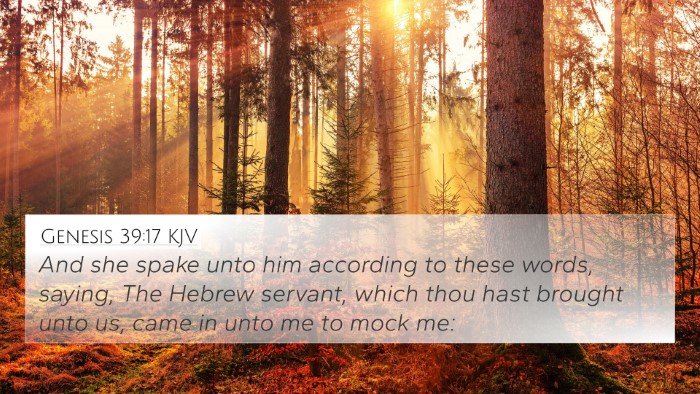Understanding Mark 6:19
Mark 6:19 states, "Therefore Herodias had a quarrel against him, and would have killed him; but she could not." This verse captures the intense animosity that Herodias held towards John the Baptist, a reflection of the broader conflict between the prophetic voice and the ruling authorities of the time.
Summary of Meaning
This text serves as a vital intersection point in the narrative regarding the fate of John the Baptist, highlighting Herodias's determination to silence him due to his condemnation of her marriage to Herod Antipas. Here are key insights drawn from public domain commentaries:
-
Matthew Henry:
Henry emphasizes the depths of Herodias's vengefulness, depicting her desire to eliminate John the Baptist as a retaliation for his righteous reproof. This illustrates the dangers faced by prophets when they confront the immoralities of those in power.
-
Albert Barnes:
Barnes offers a perspective on Herodias's character, describing her actions as cunning and malicious. He notes that John's forthright preaching of repentance was a direct challenge to her authority and personal life choices, thus inciting her wrath.
-
Adam Clarke:
Clarke analyzes the political and moral implications of Herodias's actions, emphasizing how her resentment towards John manifested in a deep-seated desire for revenge, showcasing the spiritual battle that exists when truth confronts tyranny.
Contextual Background
The enmity between Herodias and John the Baptist originates from the moral and ethical challenges John posed regarding her marriage. Herodias had been married to Herod’s brother, Philip, and John publicly denounced this marriage, which fueled her animosity. This verse encapsulates the violent tension present in biblical narratives where truth-tellers face serious opposition.
Related Bible Cross References
- Matthew 14:3-5: Provides details about Herod's imprisonment of John, clearly indicating that Herodias was a driving force behind it.
- Luke 3:19-20: Similar to Mark, this verse notes John’s rebuke of Herod for his marriage and concludes with John's imprisonment.
- Revelation 16:6: Illustrates the principle of divine retribution against those who shed innocent blood, reflecting John the Baptist's fate.
- 2 Timothy 3:12: States that all who live godly lives in Christ Jesus will suffer persecution, highlighting the trials of prophetic figures.
- Acts 13:10: Refers to the courage of apostles confronting officials, akin to John's boldness against Herod.
- 1 Kings 18:17-18: Elijah’s confrontation with Ahab mirrors John’s encounter with Herod, exemplifying prophetic opposition to rulers.
- Jeremiah 26:8: Shows how prophets, like John, faced persecution when they spoke God’s truth to power.
Thematic Connections
Mark 6:19 links to broader themes of conflict between righteousness and wickedness, illustrating the consequences of a prophetic voice in a corrupt political landscape. These themes correlate with other scriptures that explore the tension between authority and accountability in the presence of divine justice:
- Justice and Judgment: The act of speaking out against sin, as exhibited by John, aligns with the overarching narrative of deliverance and judgment found in the prophetic texts.
- The Cost of Discipleship: This verse serves as a reminder that following God's calling may lead to personal sacrifice and persecution.
- God’s Sovereignty: The struggle between Herodias's desire for vengeance and God’s overarching authority highlights His control over human affairs.
Conclusion
Mark 6:19 is not merely historical; it serves as a potent reminder of the conflict between good and evil, the challenges faced by those who proclaim truth, and the dire consequences that can arise in such confrontations. As believers reflect on this verse, it urges them to consider the cost of discipleship and the fidelity to truth in a world often opposed to divine principles.
Exploring Mark 6:19 Further
For those delving deeper into understanding the connections between Bible verses, it is essential to utilize tools for Bible cross-referencing, such as concordances or cross-reference study guides. These resources facilitate a methodical approach to identifying similar themes, characters, and teachings throughout scripture. By cross-referencing biblical texts, one can uncover rich layers of meaning that enhance comprehension and application of the Word.
Through a comprehensive Bible verse analysis, readers can better grasp how passages interlink and support one another. Engaging with scripture in this way enriches the overall understanding of God's message as presented throughout the Bible, providing insights that may not be immediately clear in isolated readings.






